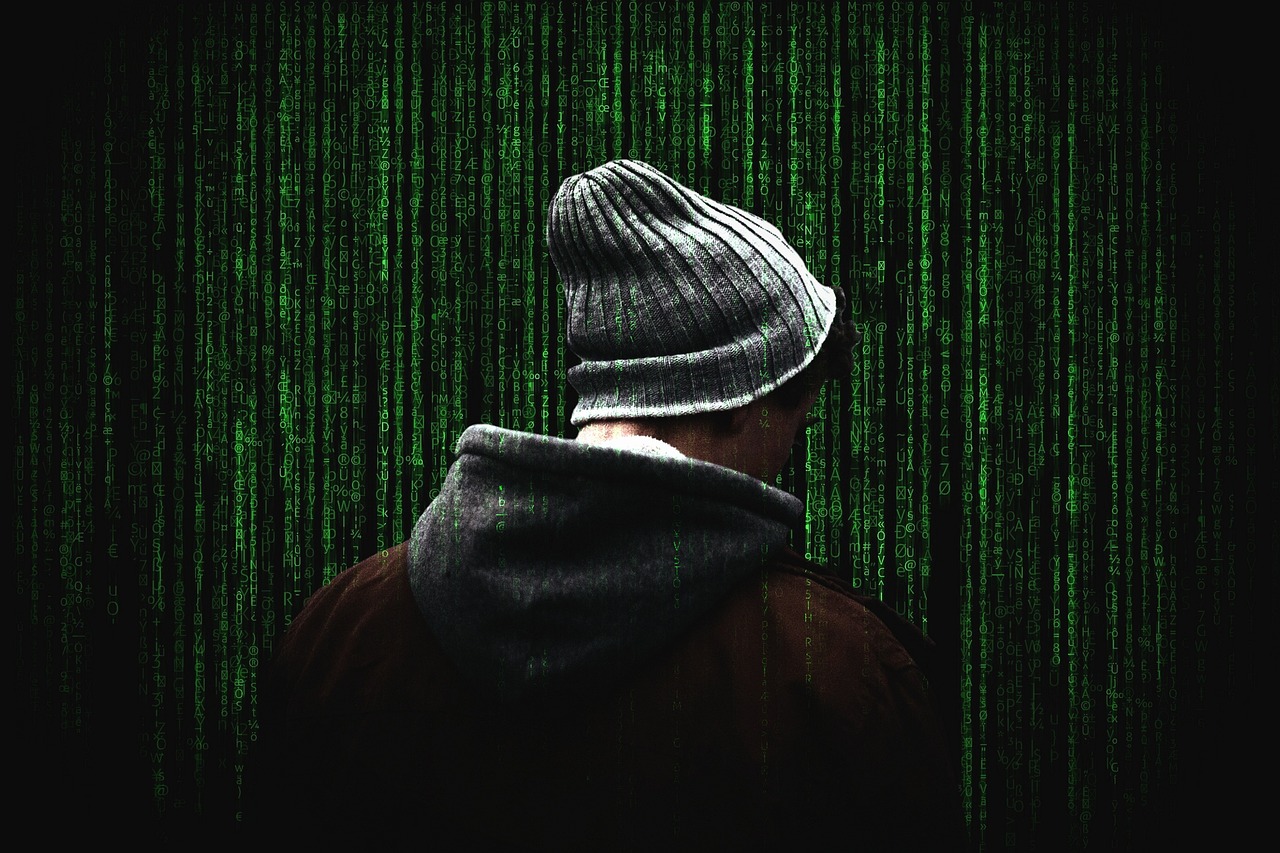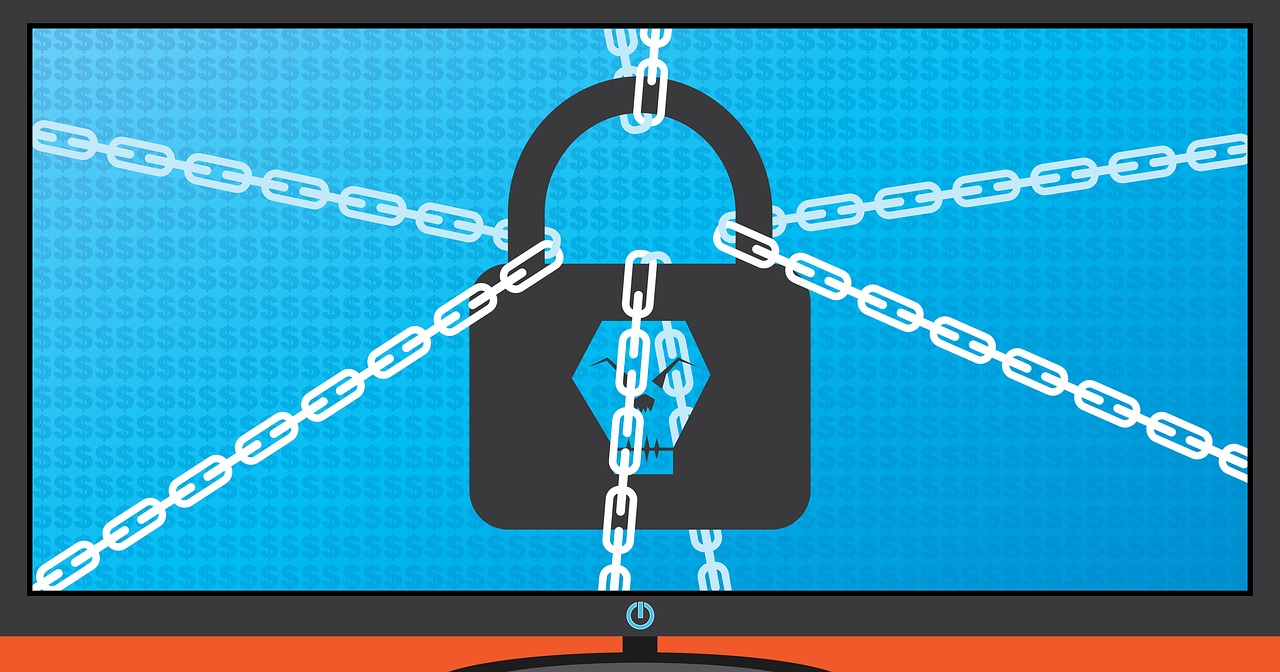The Slippery Slope of Cyber Defamation on Social Media
In today’s digital age, social media has become a double-edged sword. While it allows us to connect with friends and share our lives, it also opens the floodgates for harmful behaviors, one of which is cyber defamation. Imagine a world where a single tweet can ruin a reputation overnight; that’s the reality we live in. Cyber defamation is not just a buzzword; it’s a serious issue that can have devastating consequences for individuals and organizations alike. As we delve into this slippery slope, we’ll uncover the complexities of cyber defamation, its implications on social media platforms, and the legal ramifications that follow. So, buckle up as we navigate through this intricate web of online interactions!
Before we get into the nitty-gritty, let’s clarify what cyber defamation actually means. At its core, cyber defamation refers to the act of making false statements about someone online, which can damage their reputation. But how does this differ from traditional defamation? In the past, defamation typically involved printed or spoken words. Nowadays, with social media and the internet at our fingertips, defamatory statements can spread like wildfire, reaching thousands in mere seconds. This rapid dissemination makes it all the more harmful and challenging to combat.
Social media platforms are the modern-day town squares, where opinions are shared, and reputations can be made or broken in an instant. However, these platforms also play a significant role in the spread of defamatory content. On one hand, platforms like Facebook, Twitter, and Instagram have policies in place to combat false information and harassment. On the other hand, their algorithms often prioritize sensational content, which can inadvertently promote defamatory posts. It’s a precarious balance, and the responsibility lies not only with the platforms but also with users to think before they post. Are we aware of the potential consequences our words can have?
The legal landscape surrounding cyber defamation is as complex as a labyrinth. Different jurisdictions have varying laws governing online defamation, making it essential for individuals and organizations to understand their rights and obligations. In the United States, for instance, the First Amendment protects free speech, but this doesn’t give individuals a free pass to defame others. Laws like the Communications Decency Act provide some immunity to platforms, complicating the legal recourse for victims. Understanding this framework is crucial for anyone who finds themselves on the receiving end of defamatory remarks.
To truly grasp the severity of cyber defamation, let’s take a look at some real-life examples. One notable case involved a high-profile celebrity who became the target of a malicious rumor spread on Twitter. Within hours, the rumor went viral, leading to significant emotional distress and financial loss for the individual. Another case involved a small business that faced a false review on Yelp, which resulted in a drastic drop in customers. These case studies highlight that cyber defamation isn’t just a theoretical issue; it has real-world consequences that can affect lives and livelihoods.
The repercussions of cyber defamation can be severe and multifaceted. Victims often experience emotional turmoil, financial strain, and lasting damage to their reputations. The emotional toll can lead to anxiety and depression, while the financial impact can be crippling, especially for small businesses. Additionally, the reputational damage can take years to repair, if it can be repaired at all. The question remains: how can we prevent such damage from occurring in the first place?
Preventing cyber defamation is crucial, and there are several strategies individuals and organizations can adopt to mitigate the risk. Here are some best practices:
- Think Before You Post: Always consider the potential impact of your words.
- Monitor Your Online Presence: Regularly check what is being said about you or your brand online.
- Educate Yourself and Others: Understanding the laws surrounding defamation can empower you to act effectively.
By being proactive, we can create a safer online environment for everyone.
When faced with cyber defamation, knowing how to report it is vital. The first step is to document everything—screenshots, dates, and times are your best friends in this scenario. Next, report the content to the social media platform where it was posted. Most platforms have clear policies for handling defamation and harassment. If the situation escalates, seeking legal counsel may be necessary. Remember, you don’t have to navigate this alone; there are resources and professionals available to help you through the process.
Your digital footprint can significantly impact defamation cases. Everything you post, comment on, or like contributes to your online persona. This can either work in your favor or against you in a defamation case. A well-maintained digital presence can help establish your credibility, while a negative footprint can complicate legal proceedings. It’s essential to be mindful of your online activity, as it can influence how you are perceived in both personal and legal contexts.
As technology evolves, so do the methods of cyber defamation. Emerging trends like deepfake technology and AI-generated content pose new challenges for combating online defamation. These advancements can make it increasingly difficult to discern what is real and what is fabricated. Staying informed about these trends is crucial for individuals and organizations to protect themselves in an ever-changing digital landscape.
What is cyber defamation?
Cyber defamation refers to making false statements about someone online that can harm their reputation.
How can I report cyber defamation?
Document the defamatory content, report it to the social media platform, and consider seeking legal counsel if necessary.
What are the consequences of cyber defamation?
Consequences can include emotional distress, financial loss, and long-term reputational damage.
Can I prevent cyber defamation?
Yes, by being mindful of your online presence and educating yourself about defamation laws, you can mitigate risks.

The Definition of Cyber Defamation
Understanding what constitutes cyber defamation is essential for grasping its implications in today's digital age. In simple terms, cyber defamation refers to the act of making false statements about an individual or organization online that can harm their reputation. Unlike traditional defamation, which typically occurs in print or spoken form, cyber defamation takes place across various digital platforms, including social media, blogs, and websites.
One of the key differences between cyber defamation and traditional defamation lies in the medium through which the defamatory content is disseminated. While traditional defamation might involve a newspaper article or a slanderous remark made in public, cyber defamation can spread like wildfire due to the instantaneous nature of the internet. A single tweet or post can reach thousands, if not millions, of people within minutes, amplifying the damage done to a person's or organization's reputation.
To qualify as cyber defamation, certain elements must be present:
- False Statement: The statement made must be false. Truth is a solid defense against defamation claims.
- Publication: The statement must be published or communicated to a third party. This can include posts on social media, comments on blogs, or even emails sent to others.
- Harm: The statement must cause harm to the subject's reputation. This could manifest as loss of business, emotional distress, or damage to personal relationships.
- Negligence or Malice: The person making the statement must have acted with negligence or actual malice in knowing the statement was false or disregarding its truth.
In the context of social media, the lines can often become blurred. Many users might share or retweet content without verifying its accuracy, inadvertently contributing to the spread of false information. This behavior not only complicates the situation for the original poster but also raises questions about accountability. Are social media users responsible for the content they share? The answer lies in the legal framework surrounding defamation, which we will explore in the following sections.
In summary, cyber defamation is a modern twist on an age-old issue. Its rapid dissemination through digital channels poses unique challenges for victims seeking justice. Understanding its definition and the elements that constitute it is the first step in addressing the complexities of this phenomenon.

The Role of Social Media Platforms
Social media platforms have become the modern-day town squares, where people gather to share thoughts, opinions, and experiences. However, this digital gathering place also serves as a breeding ground for cyber defamation. The ease of sharing information, combined with the anonymity that the internet provides, can lead to the rapid spread of harmful content. You might wonder, how does a simple post escalate into a damaging smear campaign? Let's dive into this complex issue.
One of the most alarming aspects of social media is its ability to amplify messages at lightning speed. A single post can reach thousands, if not millions, of users within minutes. This phenomenon is akin to lighting a match in a dry forest; it can cause a wildfire of misinformation and defamation before anyone has a chance to intervene. Platforms like Facebook, Twitter, and Instagram have algorithms designed to promote engaging content, which can inadvertently prioritize sensationalized or defamatory posts over factual information.
Moreover, social media platforms often struggle with the balance between freedom of speech and the need to protect individuals from defamatory statements. While users have the right to express their opinions, when those opinions cross the line into false accusations or harmful statements, the platforms face a dilemma. Should they censor content that may be deemed offensive, or do they allow it under the guise of free expression? This gray area complicates the role of social media in moderating content effectively.
To combat cyber defamation, many platforms have implemented reporting systems that allow users to flag inappropriate content. However, the effectiveness of these systems can be hit or miss. Users often find themselves frustrated with the slow response times or the lack of action taken against reported posts. In fact, a recent survey indicated that over 60% of users felt that their reports were ignored, which only emboldens the perpetrators of defamation.
Here's a table summarizing the responsibilities and challenges faced by social media platforms in handling cyber defamation:
| Responsibilities | Challenges |
|---|---|
| Monitoring and moderating content | High volume of posts makes monitoring difficult |
| Providing reporting mechanisms | Users often feel reports are ineffective |
| Protecting user privacy | Balancing privacy with accountability |
| Educating users about defamation | Misunderstanding of what constitutes defamation |
As social media continues to evolve, so too does its impact on cyber defamation. The platforms are now experimenting with artificial intelligence (AI) and machine learning to identify and mitigate harmful content proactively. However, as with any technology, these solutions are not foolproof. There is always a risk of false positives, where innocent content is flagged as defamatory, leading to further frustration among users.
In conclusion, social media platforms play a dual role in the landscape of cyber defamation. While they offer a space for free expression and connection, they also bear the responsibility of ensuring that this space does not become a haven for malicious behavior. As users, it’s crucial to be aware of the potential for defamation on these platforms and to take action when we encounter harmful content. After all, just like in a real-world community, we all have a role to play in maintaining a safe and respectful environment.

Navigating the legal landscape of cyber defamation can feel like trying to find your way through a maze. The laws governing online defamation vary widely across different jurisdictions, making it essential to understand both local and international regulations. In general, defamation occurs when false statements are made about an individual or organization, leading to reputational harm. However, what constitutes a defamatory statement can differ significantly depending on the context and medium in which it is shared.
In many countries, the legal framework around defamation is grounded in traditional defamation laws, which have been adapted to fit the digital age. Most jurisdictions recognize two types of defamation: libel (written defamation) and slander (spoken defamation). The rise of social media has complicated these definitions, as statements can be disseminated rapidly and widely, often without the original poster fully understanding the implications of their words.
For instance, in the United States, the First Amendment protects free speech, but it does not provide blanket immunity for defamatory statements. Plaintiffs must prove that the statements made were false, damaging, and made with a certain level of fault, depending on the status of the person being defamed. Public figures, for example, must demonstrate "actual malice," meaning the statement was made with knowledge of its falsity or with reckless disregard for the truth.
In contrast, some countries have stricter defamation laws that place a heavier burden on the defendant to prove the truth of their statements. For example, in the United Kingdom, the Defamation Act 2013 introduced a requirement for claimants to show that the statement has caused or is likely to cause serious harm to their reputation. This shift highlights the importance of context and the potential for online statements to have far-reaching consequences.
The following table summarizes key differences in defamation laws across several jurisdictions:
| Country | Type of Law | Burden of Proof | Public Figures |
|---|---|---|---|
| United States | Common Law | Plaintiff must prove falsity | Must prove actual malice |
| United Kingdom | Defamation Act 2013 | Must show serious harm | Same as private individuals |
| Australia | Defamation Act 2005 | Must prove defamatory nature | Same as private individuals |
| Canada | Common Law | Must prove falsity | Must prove actual malice |
As we delve deeper into the complexities of cyber defamation, it becomes clear that the legal framework is not only about the laws themselves but also about the evolving nature of communication in the digital age. With the rise of social media, the lines between personal opinion and defamatory statements can often blur, leading to confusion and potential legal battles. Understanding these nuances is crucial for anyone navigating the online world, whether as a user or a business.

To truly understand the impact of cyber defamation, we can look at several real-life case studies that highlight the devastating effects it can have on individuals and businesses. One prominent example is the case of a well-known actress who became a target of false allegations on social media. A viral post claimed she was involved in illegal activities, leading to public backlash and significant damage to her career. The actress faced immense emotional distress, lost endorsement deals, and had to engage legal assistance to clear her name. This case illustrates how quickly misinformation can spread and the profound consequences it can have on a person's life.
Another striking example involves a small business owner who was falsely accused of unethical practices by a competitor on a popular review platform. The defamatory statements were shared widely, resulting in a sharp decline in customer trust and sales. The business owner had to invest considerable resources in public relations efforts to mitigate the damage, showcasing the financial toll that cyber defamation can impose. In this case, the competitor's malicious intent not only harmed the business but also demonstrated how easily reputations can be tarnished in the digital age.
These examples underscore the importance of being aware of the potential for defamation online. The rapid dissemination of information on social media platforms can amplify falsehoods, making it crucial for individuals and organizations to monitor their online presence actively. The emotional and financial repercussions of cyber defamation can be overwhelming, often requiring victims to seek legal recourse to restore their reputations.
To further illustrate the impact of cyber defamation, let's take a look at a table summarizing key aspects of these case studies:
| Case Study | Defamatory Action | Consequences | Legal Outcome |
|---|---|---|---|
| Actress | False allegations of illegal activities | Emotional distress, loss of endorsements | Engaged legal assistance to clear name |
| Small Business Owner | Accusations of unethical practices | Decline in sales, damaged reputation | Public relations efforts to mitigate damage |
In addition to personal stories, the broader implications of these cases reveal a troubling trend: the ease with which false information can be disseminated online. Victims often find themselves in a position where they must not only defend their reputations but also navigate the complex waters of social media policies and legal frameworks. As we delve deeper into the repercussions and preventive measures in the following sections, it becomes evident that awareness and proactive strategies are essential in combating the slippery slope of cyber defamation.

Cyber defamation can unleash a storm of negative consequences that can impact individuals and organizations in profound ways. Imagine waking up one day to find your reputation tarnished by false claims circulating online, leaving you feeling vulnerable and exposed. The emotional toll can be overwhelming, as victims often experience anxiety, depression, and a sense of isolation. The digital world can feel like a relentless echo chamber, amplifying the damage caused by defamatory statements.
On a financial level, the repercussions can be equally devastating. Businesses may see a significant drop in sales, as potential customers are deterred by negative online reviews or false information. For individuals, the damage to one's career can be catastrophic, leading to job loss or difficulty finding new employment. The costs associated with hiring legal counsel to combat defamation can add up quickly, creating an additional layer of stress and financial burden.
Moreover, the reputational damage caused by cyber defamation can linger long after the initial incident. In today’s digital age, information spreads like wildfire, and once something is posted online, it can be nearly impossible to erase. Victims may find themselves in a constant battle to rebuild their reputation, often having to invest significant time and resources into managing their online presence. This can include:
- Engaging in public relations campaigns to counteract negative perceptions.
- Monitoring social media and online platforms for defamatory content.
- Creating positive content to overshadow the negative.
Ultimately, the consequences of cyber defamation extend far beyond the initial act. It can lead to strained relationships, both personal and professional, as trust erodes and individuals feel the need to defend themselves against unfounded accusations. The emotional, financial, and reputational toll can create a ripple effect, impacting not just the victim but also their families, friends, and colleagues.
As we navigate this slippery slope of cyber defamation, it’s crucial for both individuals and organizations to understand these consequences fully. Awareness can foster a proactive approach to protecting one’s reputation in the digital landscape, ensuring that we are not just passive consumers of information but active participants in safeguarding our identities.
What is cyber defamation?
Cyber defamation refers to the act of making false statements about someone online that can harm their reputation. This can occur through social media, blogs, or other digital platforms.
What are the emotional impacts of cyber defamation?
Victims often experience feelings of anxiety, depression, and isolation due to the negative attention and stigma associated with defamatory statements.
How can I protect myself from cyber defamation?
Staying vigilant about your online presence, using privacy settings on social media, and monitoring your digital footprint can help mitigate risks.
What should I do if I am a victim of cyber defamation?
Document the defamatory content, report it to the platform, and consider seeking legal advice to understand your options for recourse.

In the digital age, where information spreads like wildfire, being proactive is crucial to safeguard oneself from the slippery slope of cyber defamation. It's not just about being cautious; it's about implementing a robust strategy to protect your online reputation. So, how can individuals and organizations fortify themselves against potential defamatory attacks? Here are some effective measures:
First and foremost, monitoring your online presence is vital. Regularly checking what’s being said about you or your brand on various platforms can help you catch any negative content early. Tools like Google Alerts can notify you whenever your name or brand is mentioned online. This way, you can respond promptly to any false claims before they escalate.
Next, consider establishing a solid online reputation. This involves creating positive content that highlights your achievements, values, and expertise. By flooding the internet with positive information about yourself or your business, you can effectively suppress any negative content that may arise. Think of it as building a digital fortress; the stronger and more fortified your reputation is, the harder it is for malicious content to penetrate.
Moreover, educating yourself and your team about the nuances of online communication is essential. Understanding the implications of what you post can prevent accidental defamation. Encourage a culture of responsibility where everyone thinks twice before hitting that 'send' button. This can significantly reduce the chances of inadvertently spreading false information.
It’s also wise to engage legal counsel familiar with cyber law. Having a legal expert on hand can provide valuable insights into what constitutes defamation, helping you navigate the murky waters of online interactions. They can guide you on how to draft clear and comprehensive terms of use for your website or social media pages, which can serve as a deterrent against potential defamation.
Additionally, having a crisis management plan in place can be a lifesaver. If defamatory content does surface, knowing how to react swiftly and effectively can mitigate damage. This plan should include steps for addressing the content, communicating with your audience, and seeking legal advice if necessary. Essentially, it’s about having a roadmap to follow when the unexpected happens.
Lastly, consider using privacy settings on social media platforms. By controlling who can see your posts and interact with you, you can minimize the risk of negative interactions. Remember, not everyone has your best interests at heart, and taking steps to protect your personal information can help shield you from potential attacks.
In conclusion, while the threat of cyber defamation looms large in our interconnected world, taking proactive measures can significantly reduce your risk. By staying vigilant, fostering a positive online presence, and preparing for potential crises, you can navigate the digital landscape with greater confidence and security.
- What is cyber defamation? Cyber defamation refers to the act of making false statements about someone online that can harm their reputation.
- How can I monitor my online reputation? You can use tools like Google Alerts or social media monitoring software to keep track of mentions of your name or brand.
- What should I do if I become a victim of cyber defamation? Document the defamatory content, report it to the platform, and consider consulting a legal expert to explore your options.
- Can I sue someone for cyber defamation? Yes, if the statements made are false and damaging, you may have grounds for a defamation lawsuit.

When you find yourself a victim of cyber defamation, it can feel like being caught in a storm without an umbrella. The emotional turmoil, the uncertainty, and the potential damage to your reputation can be overwhelming. However, knowing how to effectively report the defamation and pursue legal action can provide a sense of control and a pathway to reclaiming your narrative. First things first, documenting everything is crucial. Take screenshots of the defamatory content, note the dates, and save any relevant communications. This evidence will be invaluable in building your case.
Once you’ve gathered your evidence, the next step is to report the incident to the platform where the defamation occurred. Most social media sites have specific guidelines and processes for reporting abusive content. For example, platforms like Facebook and Twitter allow users to report posts or accounts that violate their community standards. Here’s a quick rundown of how to report on some popular platforms:
| Platform | Reporting Method |
|---|---|
| Click on the three dots on the post and select "Find Support or Report Post." | |
| Click on the down arrow on the tweet and select "Report Tweet." | |
| Tap the three dots on the post and select "Report." |
After reporting, it’s essential to keep track of your communications with the platform. If the content isn’t removed or if the situation escalates, it may be time to consider legal action. Consulting with a legal expert who specializes in defamation law can provide clarity on your options. They can guide you through the process, help you understand the potential outcomes, and assess whether you have a strong case.
In many jurisdictions, cyber defamation falls under the broader umbrella of defamation laws, which can be quite complex. You may have to prove that the statement was false, damaging, and made with a certain level of intent or negligence. This is where your documented evidence comes into play. It’s not just about what was said; it’s about how it affects your life and reputation. If you decide to pursue legal action, be prepared for a process that can take time and may involve mediation or court appearances.
Additionally, it’s worth noting that the legal landscape surrounding cyber defamation varies significantly from one place to another. Some areas have robust protections for individuals against online defamation, while others may not. Understanding the laws in your jurisdiction can make a big difference in how you approach the situation. It’s also beneficial to stay informed about any recent changes in legislation that may affect your case.
Finally, while pursuing legal action can be a powerful step, it’s essential to consider the emotional toll it may take. Engaging in a legal battle can be stressful, and it’s important to have a support system in place. Whether it’s friends, family, or a professional counselor, having people to lean on can make navigating this challenging time a little easier.
In conclusion, reporting and taking legal action against cyber defamation is a multi-step process that requires careful consideration and preparation. By documenting incidents, understanding platform policies, and consulting with legal experts, you can take meaningful steps to protect your reputation and seek justice.
- What is cyber defamation? Cyber defamation refers to the act of making false statements about someone online that damage their reputation.
- How can I report cyber defamation? You can report it directly on the social media platform where it occurred, following their specific reporting procedures.
- What should I do if the platform does not take action? Consider seeking legal advice to explore your options for pursuing a defamation claim.
- Is it worth pursuing legal action for cyber defamation? It depends on the severity of the defamation and the impact it has had on your life. Consulting a legal expert can help you make this decision.

In today’s digital age, your digital footprint—the trail of data you leave behind online—plays a crucial role in defamation cases. Think of it as your online shadow; it follows you wherever you go on the internet. Every post, comment, and interaction contributes to this footprint, making it a significant factor when accusations of defamation arise. But how does this footprint influence the legal landscape surrounding cyber defamation?
Firstly, your digital footprint can provide context to the claims made against you. For instance, if someone accuses you of making defamatory statements, the content of your previous posts can either support or undermine your case. If your online activity shows a pattern of aggressive or defamatory behavior, it could be used against you in court. On the other hand, a clean digital record can bolster your defense, suggesting that the claims are unfounded.
Moreover, the platforms you use and how you engage with others can also impact the outcome of a defamation case. Different social media platforms have varying policies and community standards, which can affect how defamation is perceived. For example, a comment made on a professional networking site like LinkedIn might carry different weight than a post on a casual platform like Twitter. The context in which statements are made is vital, and your digital footprint helps establish that context.
Another important aspect is the traceability of your digital actions. In a world where anonymity is often just a click away, the ability to trace back to the original source of a defamatory statement can be challenging. However, a well-documented digital footprint can assist in identifying who said what, and when. This is particularly important in cases where multiple parties are involved, as it can clarify the chain of communication and responsibility.
Furthermore, your digital footprint can also impact your reputation. In the age of Google, potential employers, clients, and even friends often conduct online searches before engaging with a person. If defamatory statements are made against you, they can spread quickly, tarnishing your reputation long before any legal resolution is reached. This is why it’s essential to monitor your online presence actively and manage your digital footprint effectively.
To illustrate the significance of a digital footprint in defamation cases, consider the following table that outlines key elements:
| Element | Impact on Defamation Cases |
|---|---|
| Online Activity | Can support or undermine claims based on past behavior |
| Platform Choice | Affects the perception and context of statements made |
| Traceability | Helps identify the source of defamatory content |
| Reputation Management | Influences how others perceive you in light of accusations |
In conclusion, the role of your digital footprint in defamation cases cannot be underestimated. It’s not just about what you say, but how your online presence shapes the narrative around you. As we continue to navigate the complexities of the digital world, being aware of the implications of our online actions is more important than ever. After all, in the realm of cyber defamation, your digital shadow can either be your greatest ally or your worst enemy.
- What is a digital footprint? A digital footprint is the trail of data you leave behind while using the internet, which includes your social media activity, websites visited, and online purchases.
- How can my digital footprint affect a defamation case? Your digital footprint can provide context to your statements, help trace the source of defamatory content, and influence your reputation.
- Can I remove negative content from my digital footprint? While you may not be able to remove everything, you can manage your online presence by adjusting privacy settings, deleting old posts, and creating positive content.

As we look ahead, the landscape of cyber defamation is evolving at a breakneck pace, driven by rapid advancements in technology and shifts in user behavior. One of the most significant trends is the rise of artificial intelligence (AI) and its role in both creating and detecting defamatory content. AI algorithms are becoming increasingly sophisticated, enabling them to generate realistic fake news or misleading information that can spread like wildfire across social media platforms. This raises a crucial question: how can we differentiate between genuine content and AI-generated misinformation?
Moreover, the emergence of deepfake technology poses a new challenge for individuals and organizations alike. Deepfakes can manipulate audio and video to create seemingly authentic content that can damage reputations without any basis in reality. Imagine waking up to find a video of yourself saying things you never actually said! This not only complicates the legal landscape but also creates an environment where trust in digital media is rapidly eroding.
Another trend to watch is the increasing globalization of the internet. As more people connect online, the potential for cross-border defamation cases rises. What might be considered defamatory in one country could be viewed differently in another. This disparity in laws complicates the pursuit of justice for victims of cyber defamation. Consequently, international cooperation among legal systems may become necessary to address these challenges effectively.
Additionally, social media platforms are under pressure to enhance their content moderation policies. With growing public scrutiny, companies like Facebook and Twitter are investing in better algorithms and human oversight to tackle the spread of defamatory content. However, the balance between free speech and preventing harm is delicate. Will these platforms succeed in creating a safer online environment, or will they inadvertently stifle legitimate expression?
Finally, as digital literacy improves among users, there is hope that individuals will become more discerning consumers of online content. Educational initiatives aimed at teaching people how to identify misinformation and understand the implications of sharing potentially harmful content could play a pivotal role in combating cyber defamation. By fostering a culture of critical thinking, we can empower users to navigate the digital landscape more responsibly.
In conclusion, the future of cyber defamation is fraught with challenges, but it also presents opportunities for innovation and improvement. As technology continues to evolve, so too must our strategies for addressing the complexities of online defamation. Staying informed and proactive will be essential for individuals and organizations striving to protect their reputations in this ever-changing digital world.
- What is cyber defamation? Cyber defamation refers to the act of damaging someone's reputation through false statements made online, typically on social media platforms or websites.
- How can I protect myself from cyber defamation? You can protect yourself by monitoring your online presence, being cautious about what you share, and employing privacy settings on social media.
- What should I do if I am a victim of cyber defamation? Document the defamatory material, report it to the platform, and consider seeking legal advice to understand your options.
- Are there laws against cyber defamation? Yes, many jurisdictions have laws that govern defamation, including cyber defamation, but these laws can vary widely.
Frequently Asked Questions
- What is cyber defamation?
Cyber defamation refers to the act of making false statements about someone online that harm their reputation. Unlike traditional defamation, which occurs in print or spoken words, cyber defamation takes place on digital platforms such as social media, blogs, or websites.
- How do social media platforms contribute to cyber defamation?
Social media platforms can amplify defamatory content due to their vast reach and instantaneous sharing capabilities. While some platforms have policies to combat harmful content, the sheer volume of posts can make it challenging to monitor and remove defamatory statements effectively.
- What legal protections exist against cyber defamation?
The legal framework surrounding cyber defamation varies by jurisdiction. Generally, individuals can pursue legal action under defamation laws, which may require proving that the statements were false, damaging, and made with negligence or malice.
- Can you provide examples of cyber defamation cases?
Yes! There have been numerous high-profile cases of cyber defamation. For instance, a celebrity might face false rumors on social media that damage their career, leading them to seek legal recourse. Such case studies highlight the serious impact of defamatory content online.
- What are the consequences of cyber defamation?
The consequences can be severe, including emotional distress, financial loss, and damage to one’s reputation. Victims may suffer from anxiety, depression, and even job loss due to the fallout from defamatory statements.
- How can individuals protect themselves from cyber defamation?
Preventive measures include maintaining a positive online presence, being cautious about what you share, and monitoring your digital footprint. Additionally, educating yourself about your rights can empower you to respond effectively if targeted.
- What should I do if I become a victim of cyber defamation?
If you find yourself a victim, it's important to document the defamatory content, report it to the platform, and consider seeking legal advice. Taking these steps can help you address the situation more effectively.
- How does a digital footprint impact defamation cases?
Your digital footprint can significantly influence defamation cases. A well-documented online presence can serve as evidence in court, while a negative or misleading digital footprint can complicate your defense.
- What future trends should we be aware of regarding cyber defamation?
As technology evolves, new methods of cyber defamation are likely to emerge, including deepfakes and misinformation campaigns. Staying informed about these trends is crucial for individuals and organizations to protect themselves.



















